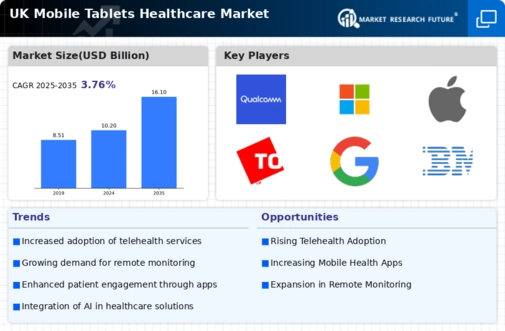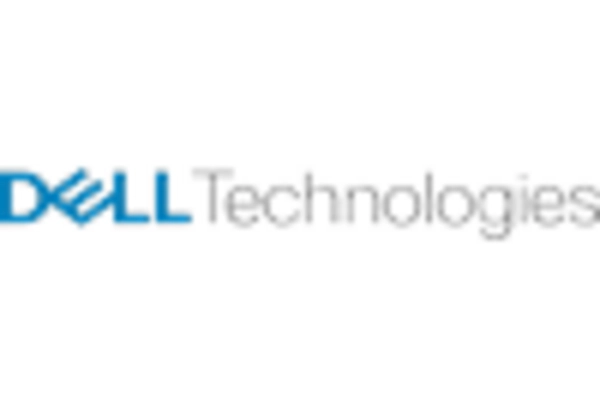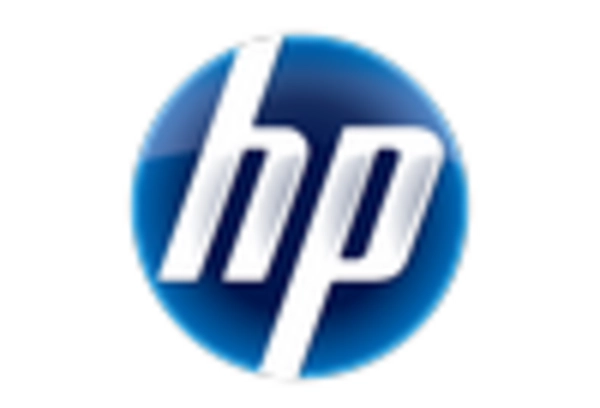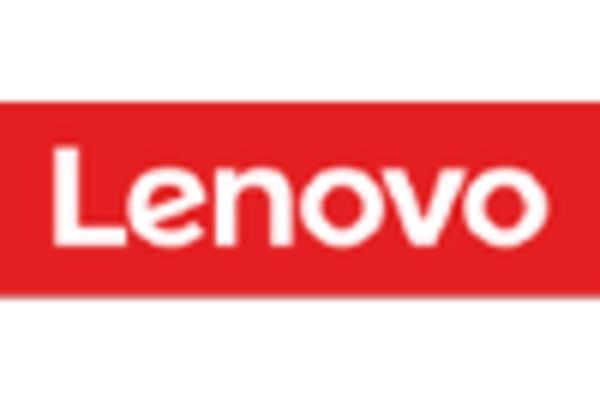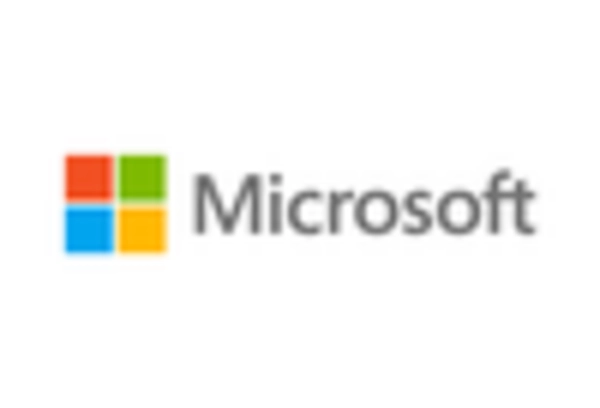Increased Focus on Patient-Centric Care
The mobile tablets-healthcare market is witnessing a shift towards patient-centric care, which emphasizes the importance of involving patients in their own healthcare decisions. This approach is facilitated by mobile tablets that provide access to personal health information, educational resources, and communication tools. Research indicates that approximately 40% of patients in the UK prefer using mobile devices to manage their health, reflecting a growing trend towards self-management. By empowering patients with information and tools, healthcare providers can enhance patient satisfaction and outcomes. This focus on patient engagement is likely to drive the adoption of mobile tablets in healthcare settings, as providers seek to improve the overall patient experience and foster a collaborative healthcare environment.
Growing Emphasis on Health Data Analytics
The mobile tablets-healthcare market is increasingly influenced by the growing emphasis on health data analytics. Healthcare providers are recognizing the value of data-driven decision-making to improve patient outcomes and operational efficiency. Mobile tablets facilitate the collection and analysis of health data, enabling providers to identify trends and make informed decisions. Recent studies suggest that around 35% of healthcare organizations in the UK are leveraging mobile tablets for data analytics purposes. This trend indicates a shift towards a more analytical approach in healthcare, where data insights can lead to personalized treatment plans and better resource allocation. As the importance of health data analytics continues to rise, the mobile tablets-healthcare market is expected to expand, driven by the demand for data-enabled healthcare solutions.
Rising Demand for Remote Patient Monitoring
The mobile tablets-healthcare market is experiencing a notable increase in demand for remote patient monitoring solutions. This trend is driven by the need for continuous health tracking and management, particularly for chronic conditions. According to recent data, approximately 30% of healthcare providers in the UK have integrated mobile tablets into their remote monitoring systems. These devices facilitate real-time data collection and communication between patients and healthcare professionals, enhancing patient engagement and adherence to treatment plans. The convenience of mobile tablets allows patients to manage their health from home, reducing the burden on healthcare facilities. As the population ages and the prevalence of chronic diseases rises, the mobile tablets-healthcare market is likely to expand further, catering to the growing need for effective remote monitoring solutions.
Technological Advancements in Mobile Devices
Technological advancements in mobile devices are significantly influencing the mobile tablets-healthcare market. Innovations such as improved battery life, enhanced processing power, and high-resolution displays are making tablets more suitable for healthcare applications. For instance, the introduction of tablets with advanced imaging capabilities allows healthcare professionals to access and share medical images seamlessly. Furthermore, the integration of artificial intelligence and machine learning into mobile applications is enhancing diagnostic accuracy and patient care. As of 2025, it is estimated that over 50% of healthcare providers in the UK utilize mobile tablets equipped with these advanced features, indicating a shift towards more efficient and effective healthcare delivery. This trend suggests that ongoing technological improvements will continue to drive the mobile tablets-healthcare market forward.
Regulatory Support for Digital Health Solutions
Regulatory support for digital health solutions is emerging as a key driver for the mobile tablets-healthcare market. The UK government has been actively promoting the adoption of digital health technologies through various initiatives and funding programs. For example, the NHS Long Term Plan outlines a commitment to increasing the use of digital tools in healthcare, which includes mobile tablets. This regulatory backing not only encourages healthcare providers to invest in mobile technology but also instills confidence in patients regarding the safety and efficacy of these solutions. As a result, the mobile tablets-healthcare market is likely to benefit from increased investment and innovation, fostering a more robust digital health ecosystem in the UK.


